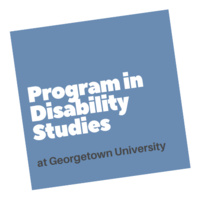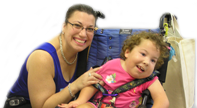Disability Organizing in the Age of Covid-19: Medical Rationing, Eugenics, and the Precarity of Mutual Aid
7:00 p.m.
Location: Online
In the years before the current covid-19 pandemic, hospitals across the United States quietly prepared medical rationing plans that would place people with disabilities and chronic illnesses at the bottom of the priorities list for care, resources, and equipment in the event of an overloaded hospital with limited supplies.
Now, with medical rationing plans that disabled people losing the ventilators they use for everyday breathing if they seek care for covid-19, disabled advocates are once again sounding the alarm on new eugenics practices and proposals nationally. While businesses shutter, schools close, and gig workers hemorrhage money, sick and disabled people at the margins of the margins are on the front lines building mutual aid and collective care networks to fill the gaps, advocating fiercely to stop dangerous eugenic proposals, and creating resources for each other to survive. The panelists in this discussion will address the historical context for today's crass manifestations of ableism, and what disabled advocates are fighting for now.
- We are providing ASL interpretation and CART captioning, with options for video and phone-only participation, and captioning in a separate window.
- You must RSVP before Sunday 19 April 2020 to receive a webinar link. Please contact [email protected] with any questions.
Speaker Bios
Jay Salazar, a Latinx trans man, migrated to Oakland with family at age of 7. Jay grew up undocumented and realized that life was going to be much harder for him in 2003. In 2014 Jay was able to adjust his status and was able to get a work permit, life changed, for the first time, he was able to apply to any job and do things that felt fulfilling. After two years he had to stop working due to chronic pain, shortly after he was diagnosed with an autoimmune illness. During the last two years, Jay has had to learn a new normal and has gone back to school for community health work and has been working with Disability Justice Culture Club. Most recently, Jay has been working with as one of the many leaders in the doing mutual aid work with a network of over 300 volunteers and different community partners in the bay area helping provide mutual aid to the people most at risk during this pandemic.
Dana Garza is a queer, disabled, femme of color, healer and activist of mixed Tejanx and Scottish ascent. She comes from a grassroots and working class background and is informed by her lived experiences at the intersections of class, race, ability, gender and sexuality. She is a member of the collective group Disability Justice Culture Club.
Shain Neumeier is a lawyer, activist, and community organizer, as well as an out and proud member of the disabled, trans, queer, and asexual communities. Their passion on the issue of ending abuse and neglect of youth with disabilities in schools and treatment facilities stems from their own experiences with involuntary medical treatment and bullying, and led them to go to law school. They have pursued their goal of using legal advocacy to address these problems ever since. Their work appears in Autistic Activism and the Neurodiversity Movement: Stories from the Frontlines, Resistance and Hope: Crip Wisdom for the People, Rewire News, and Loud Hands: Autistic People, Speaking. When not working, they're probably crafting, playing Dungeons & Dragons, listening to history podcasts, or watching Netflix with their partner and three feline roommates.
Lydia X. Z. Brown is a disabled advocate and attorney. They are Institute Associate for Disability Rights and Algorithmic Fairness at Georgetown Law's Institute for Tech Law and Policy, and adjunct lecturer in the Department of English for the Disability Studies Program.








